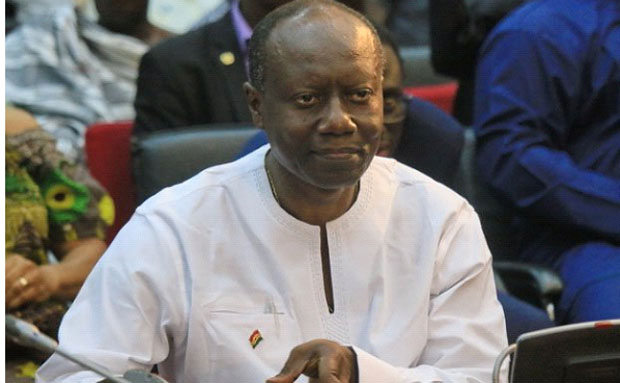Finance Minister Ken Ofori-Atta
GHANA MOVED into the best five performing countries of Rand Merchant Bank’s (RMB) latest Investment Attractiveness rankings, climbing up by three places.
The investment attractiveness rankings, co-authored by Celeste Fauconnier, Neville Mandimika and Nema Ramkhelawan-Bhana, described Ghana’s growth outlook as a strong one premised on the oil and gas sector.
According to the report, non-oil growth was forecast to pick up again, supported by pro-business reforms and a steady improvement in power supply indicating also that political stability would remain underpinned by Ghana’s strong democratic credentials.
This year, the co-authors delved deeper into the traditional and alternative sectors driving African economies to reach ever-higher levels of economic growth.
The report said Ghana’s mining industry, worth US$5.9 billion in 2019 and the third highest in Africa, grew at 6.3 per cent year-on-year, outshining many of its continental peers in the resources sector.
It said Ghana also had Africa’s highest ranking in the Fitch Solutions mining risk/return reward index which assessed potential returns on investment both in terms of industry size and forecast growth and broader country characteristics like the regulatory environment.
However, the report said the Accra retail market was close to saturation; and new developments were likely to open in a challenging economic environment.
In the short to medium term, it said retail development was likely to focus on secondary cities such as Takoradi and Kumasi.
“Ghana’s manufacturing sector is ranked the eighth strongest on the continent characterized by its small market size but high competitiveness,” it averred, adding that Ghana remained one of the few West African countries that continued to offer positive examples of economic recovery by placing emphasis on diversifying its economy.
It said despite the recent deterioration in its operating environment rankings, Ghana remained one of the easier business environments in Africa.
“Over the medium term is expected to average 6.2 per cent, which is supportive of the greater macroeconomic fundamentals,” it added.
The report, however, said the country’s public debt burden (and public arrears in the local sector) required considerable fiscal consolidation to correct, adding that Ghana’s commodity dependency was increasing, with oil, gold and cocoa as the main exports, which left Ghana heavily exposed to international price trends.
– GNA

